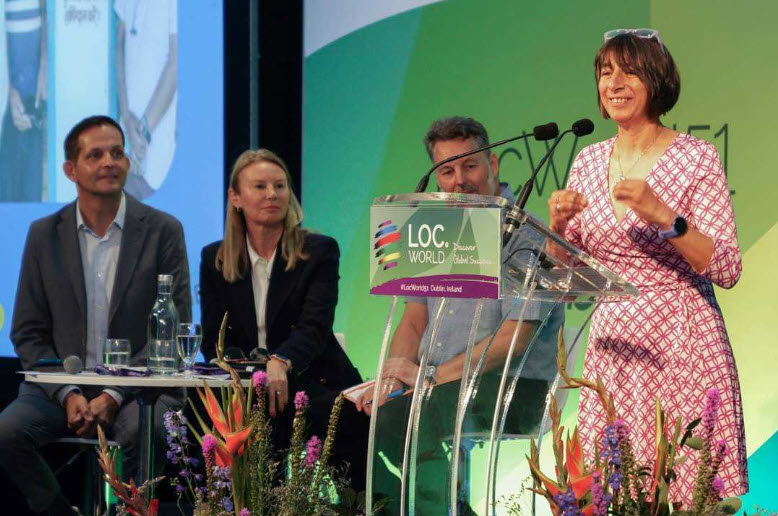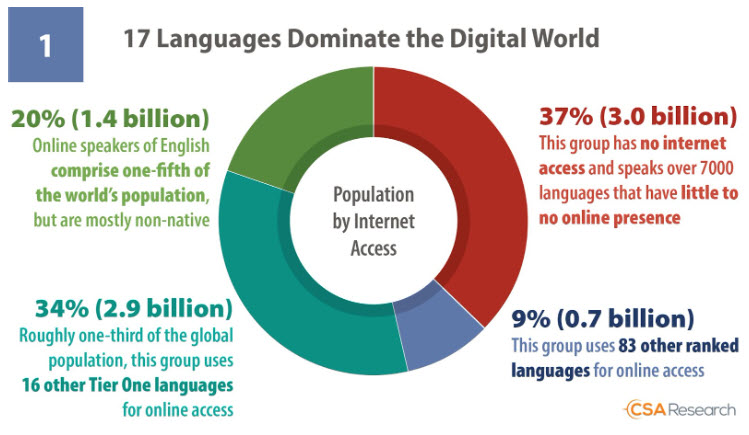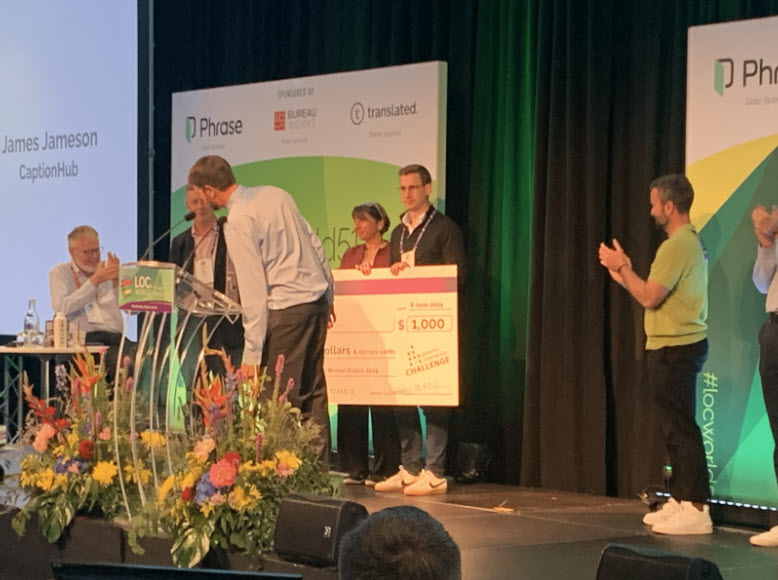LocWorld 51: 4 key takeaways to strive for a fairer future
In June, CLEAR Global joined localization professionals, language technology companies, and other industry leaders from around the world for this year’s LocWorld 51 conference in Dublin. Themed “AI and Beyond”, the conference was packed with presentations, panel discussions and networking opportunities as attendees unpacked the latest trends, challenges and innovation from global attendees.
CLEAR Global’s Chief Executive, Aimee Ansari, was fortunate to be asked to talk about our work during the opening plenary. Aimee spoke about how 3.7 billion people face language barriers when trying to access digital information. She highlighted the challenges and risks of these language barriers.


CLEAR Global’s focus this year was creating a fairer future and exploring the role AI technology plays. Here are the 4 key takeaways from LocWorld 51.
-
Language inclusion in AI is a global priority
Despite the widespread adoption of AI in the language and localization industry, language exclusion is a problem in AI. Generative AI is based on large language models (LLM) and mainly trained in English, excluding 80% of the world’s population.
Language inclusion should be a global priority to ensure that AI technologies serve all communities equitably. CLEAR Gobal’s aim in Dublin was to advance the conversation around the impact of language inclusion and the significant impact AI can have on bridging language gaps and empowering local communities.
- Innovation in the localization industry
This year’s Process Innovation Challenge saw incredible advancements in efficiency and creativity, reshaping how languages are managed and localized globally. CLEAR Global’s TILES (Touch Interface for Language Enabled Services) was the runner up of the PIC, won by CaptionHub who graciously donated their prize to us.
Innovation is at the core of language inclusion, driving the development of technology that can bridge language divides and empower marginalized communities worldwide. As these advancements continue, collaboration and investment remain crucial to ensure equitable access and impact.

- Coordinated collaboration is urgently needed
Language data collection efforts remain siloed; each organization collecting their own, often domain specific, data. Funding is fragmented and inadequate. But there are projects, like CLEAR Global’s project to build machine translation in Rwanda, that are open source, scalable and have incredible potential to empower marginalized language speakers and provide vital access to information.
To create inclusive LLMs that include data from marginalized languages, we need language data – digitized voice or text datasets in the right languages. Even languages with millions of speakers may not have high quality parallel language datasets.
Collaboration is urgently needed between linguists, technology partners, and community based organizations to provide access to these speakers. Thankfully, we have a community of linguists, Translators without Borders, but greater coordination is needed between technology partners and organizations.
- Everyone has a role to play in a fairer future
Creating a fairer future requires a collective effort from all. Researchers, developers, development workers, linguists, community members and organizations must work together to ensure that everyone regardless of language has access to vital information.
To achieve language inclusion in technology, now is the moment to double down and invest in technology and organizations that empower diverse language speakers globally.
80% of the world is counting on us.
Written by Megan Johnson, Communications Officer, CLEAR Global